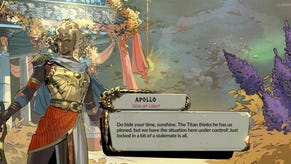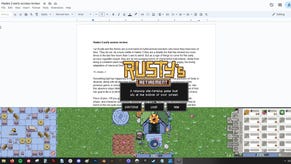The Sunday Papers
Read more
Sundays are for putting a big pot of sauce on. Before you let it sit, let's read this week's best writing about games (and game related things).
Over on Vice, Rachel Cheung wrote about how a bored Chinese housewife spent years falsifying Russian history on Wikipedia. An incredible hoax that escalated from something innocuous and undermined Wikipedia in the process.
One of her longest articles was almost the length of “The Great Gatsby.” With the formal, authoritative tone of an encyclopedia, it detailed three Tartar uprisings in the 17th century that left a lasting impact on Russia, complete with a map she made. In another entry, she shared rare images of ancient coins, which she claimed to have obtained from a Russian archaeological team.
Simon Parkin reviewed Lulu Chen's new book Influence Empire for The Guardian. Sounds like a must-read insight into Chinese tech company Tencent and its ties with the Chinese government.
Tencent’s success is a result of the company’s ability to adapt to the shifting internet, and Chen ably charts its diversification over the years. But it is also clear that Pony, a private businessman, has survived and thrived in a state-dominant economy through tact, diplomacy and a canny political sense (he is a member of China’s legislative council, which meets once a year in Beijing to discuss the national agenda). The book’s most interesting material explores the waxing and waning of the relationship between Tencent and the Chinese communist party, which is eager to, as Chen puts it, “keep the rising class of tech-savvy moguls in place before their economic aspirations turn political”. (She claims, for example, that the Chinese government has disrupted Tencent’s services for overseas customers, delaying messages and transactions, when it wanted to show who’s boss.)
On GamesIndustry.biz, Brendan Sinclair wrote about Diablo Immortal, monetisation, and what lies behind fuzzy PR speak. An interesting dissection of the game not being for everyone, despite Activision Blizzard saying that's the case.
Like many in the free-to-play space, the execs at Activision Blizzard don't want players to know what they are getting in exchange for their money. They don't want players to understand just how much they have spent, or how much more they will need to spend until they have what they want. They want to slant the playing field against players being able to make informed purchasing decisions. They push and prod players with limited time offers that incentivize them not to think too carefully about the real-world money they are spending for a mish-mash of virtual currencies or in-game items that will give them a random selection of things that may or may not include the thing they actually want.
Ashley Bardhan wrote about attending an indie rock show in Roblox for Kotaku. A chance to see artist Soccer Mommy leads to chaos in the best and worst kind of way...
Someone named savorydip keeps running people over. Everyone’s jumping on stage, so I, too, am jumping. Roblox makes you feel so free! Someone named Mike says “jump if you love soccer mommy,” and someone else says “Happy Jumping Time.” Yes!
Music this week is Rinse Me Down by Bombay Bicycle Club. Here's the YouTube link and Spotify link. A lovely tune I rediscovered recently.
I'm about halfway through Lea Ypi's book Free, a memoir of growing up in an Albania undergoing political upheaval. You learn what life was really like under communism and it explores "freedom" as state power shifts. A fantastic read so far.
That's it for now, catch you next week folks!









